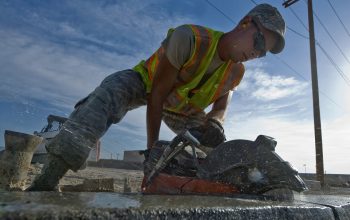What are 'Slashies' where does the name come from? - The name Slashies, comes from the way people might respond...
A limited company that is unable to meet its tax liabilities when they become due is technically insolvent. Often the only solution open to the director/s is to liquidate the company. For instance, this would apply to a contractor/director who has spent the money put aside to meet their limited company’s corporation tax and who does not have access to alternative sources of personal or other finance. The closest HMRC comes to negotiating is by allowing a Time to Pay arrangement. However, if the debt cannot be paid off in one year, or if the company has had a Time to Pay agreement previously, then HMRC will not negotiate and the debt must be paid in full.
Why normally cash-rich companies can go bust
Companies typically find themselves unable to pay their tax bills for three reasons: A limited company/ contractor might have an extended period of time between contracts. With no income and the same outgoings, they choose to dip into their limited company’s corporation tax fund to continue paying themselves a salary. In some cases, tragedy may have struck the contractor’s household and either they are too sick to work, or they are nursing a spouse or relative. Without an alternative source of income, they keep their household going, again using company money originally set aside for tax. Finally, there are the ‘ostriches’, so called because they often choose to ignore the situation: Some contractors/ directors claim they are no good at paperwork, or even ignore their accountant’s advice to set money aside for tax and spend all of their income to sustain their lifestyle. Often the ‘ostriches’ don’t understand that the company is a separate legal entity from them, and treat the cash in the business like their own personal piggy bank, including money that should be saved for tax payments. For the ‘ostriches’, it is the knock on the door by the bailiff that may finally spur them into action: The bailiffs may visit when the contractor is at work, so it is their partner or spouse, or even their children who answer the door. And it may also be the first time anyone else in the family becomes aware that there is a problem.
Winding-up orders and compulsory liquidation
Eventually, if HMRC has not been paid, it will apply to the county court for a compulsory winding-up order and force the company into liquidation. This is not a good outcome for a contractor. If a contractor/director ignores HMRC and does not speak to a licensed insolvency practitioner, then HMRC will liquidate the company. The local official receiver will hand the file to the next insolvency practitioner on the rota to work out a payment plan. Or, if the contractor has no income, the insolvency practitioner can make them bankrupt and seize personal assets like their house. The actions taken by official receivers and local insolvency practitioners are highly variable. Some contractors ‘get away with it’ and walk away from the liquidated company; others do lose their homes. Voluntary actions before HMRC takes the ‘nuclear option’ The most effective action for contractors in tax arrears and unable to pay their bills is to be proactive, and avoid the random outcomes of the official receiver and court-appointed insolvency practitioners. It may be possible to negotiate a Time to Pay agreement with HMRC if the debt can be repaid within 12 months, he says. But the contractor’s earnings may not be sufficient to make that possible. A company voluntary arrangement (CVA) is an unlikely option because it requires the agreement of the creditors, and for most limited company contractors the only creditor is HMRC, which is unlikely to negotiate. The trigger point for insolvency is when the contractor’s limited company cannot realistically repay the debt within 12 months. If this is the case, the solution for most contractors is to undergo a voluntary liquidation. This would involve them agreeing on an affordable payment plan to clear the tax arrears, using a licensed insolvency practitioner who the contractor has chosen. The contractor can usually then start a new contractor limited company and get on with their contracting career.
‘D reports’ on the conduct of contractor/ directors
But it may not be quite as simple as starting a new company and moving on, Insolvency practitioners are required to submit a ‘D report’ on the conduct of the directors which resulted in the insolvency. If the insolvency arose because the contractor spent the money owed to HMRC, then they would almost certainly fall into the category of an adverse report. The Insolvency Service may then take action that could result in the contractor being disqualified from being a director. In cases when there was genuine hardship, such as a family illness, this will be taken into account as a mitigating factor. Many banks no longer provide a bank account to a company where one of its directors has been involved in insolvency. This in itself is a problem, because if a contractor cannot trade via a limited company and has to use an umbrella company, their net income will fall by an average of 15%. This in turn may mean the contractor cannot afford the repayment plan they have agreed.
Conclusion
In conclusion, contractors/directors should act as soon as there is any chance of them getting into tax arrears: Although circumstances may force insolvency on some, many could avoid getting into tax arrears by recognising that their company is a separate legal entity. Being a director comes with responsibilities, which includes making provision for the company’s debts, including its tax liabilities.



